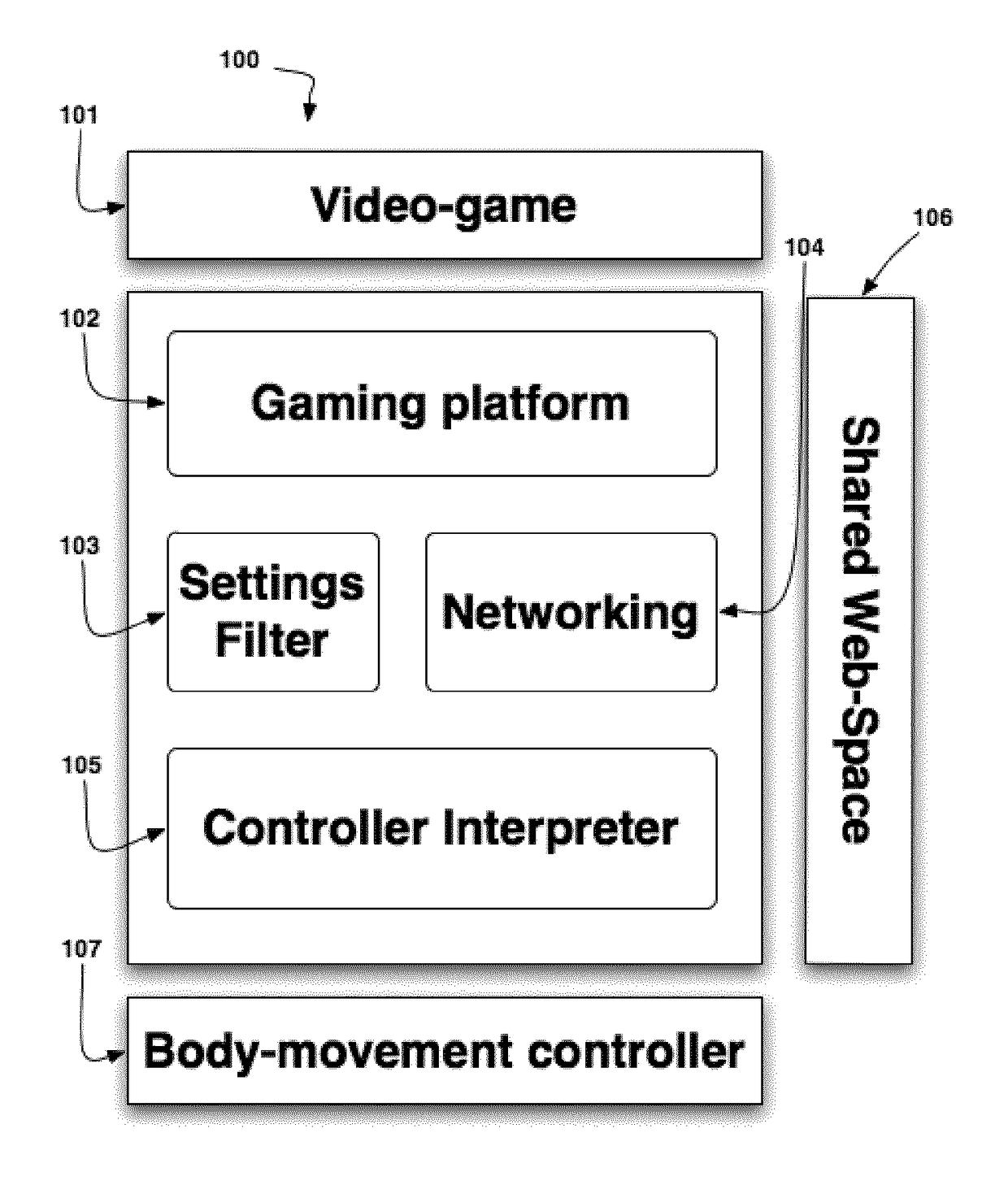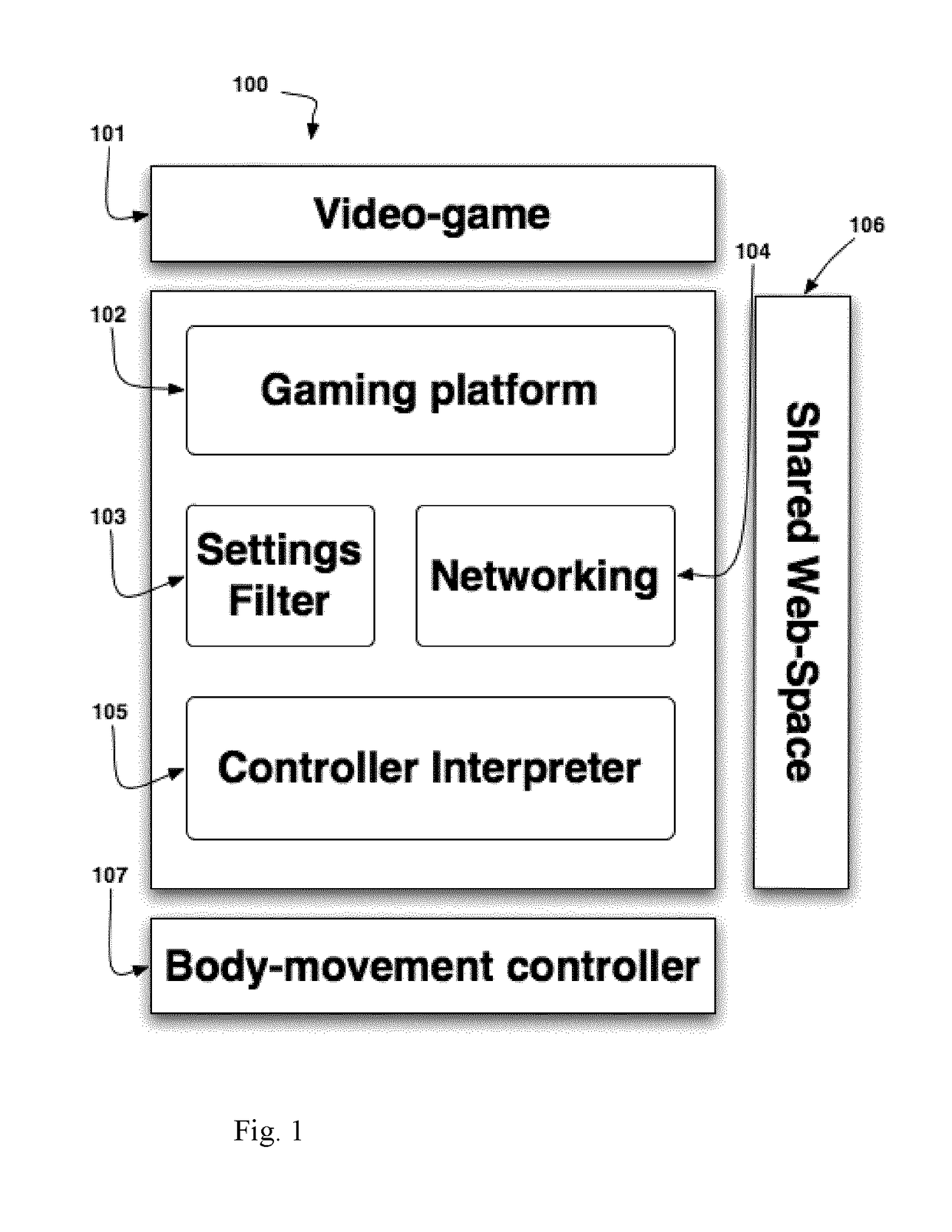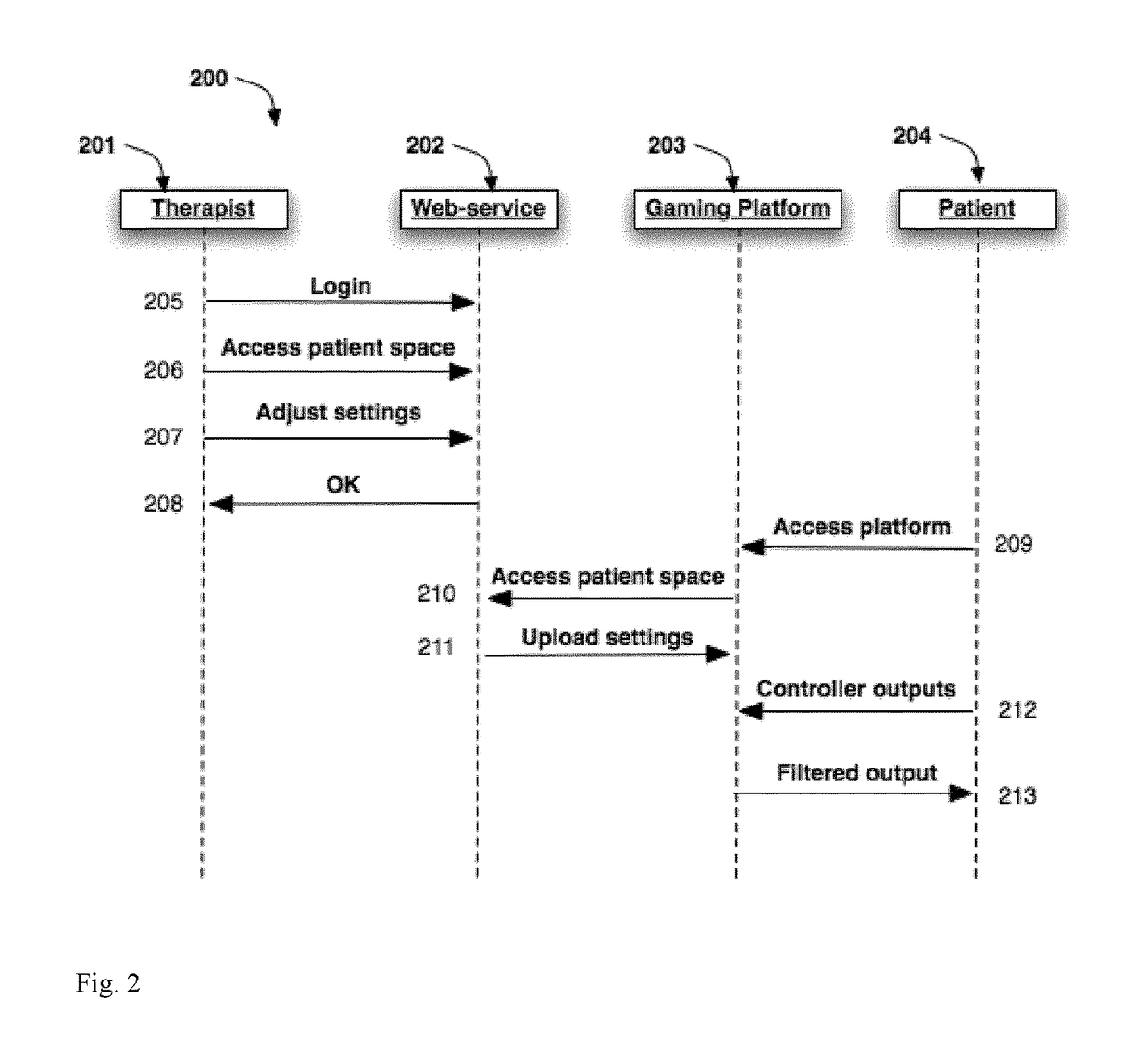System and methods to remotely and asynchronously interact with rehabilitation video-games
a technology of videogames and rehabilitation, applied in the field of videogames sensing controllers, can solve the problem of not directly determining the way the patient interacts with the rehabilitation device, and achieve the effects of controlling the effectiveness of the game, low cost, and large availability of gaming platforms
- Summary
- Abstract
- Description
- Claims
- Application Information
AI Technical Summary
Benefits of technology
Problems solved by technology
Method used
Image
Examples
Embodiment Construction
[0027]The main aspects of the invention are the followings:[0028]1. the first one is related to the filtering imposed to patient movement by therapist settings when patient plays a video-game. The patient is forced to perform some specific movements thanks to the audio-visual feedback of the video-game that will be the result of the combination of patient movements and therapist settings. Additionally, a patient with limited ability in doing certain movements will be able to play effectively a video-game, thanks to the combination of movements and specific settings.[0029]2. The second aspect is related to the way information are stored on the shared web space while the patient is playing, with respect to therapist settings. This information help the therapist in understanding what the patient has done and decide new settings according to the history of patient movements coupled with the imposed settings, and the status of the rehabilitation programme.
[0030]An embodiment of the propo...
PUM
 Login to View More
Login to View More Abstract
Description
Claims
Application Information
 Login to View More
Login to View More - R&D
- Intellectual Property
- Life Sciences
- Materials
- Tech Scout
- Unparalleled Data Quality
- Higher Quality Content
- 60% Fewer Hallucinations
Browse by: Latest US Patents, China's latest patents, Technical Efficacy Thesaurus, Application Domain, Technology Topic, Popular Technical Reports.
© 2025 PatSnap. All rights reserved.Legal|Privacy policy|Modern Slavery Act Transparency Statement|Sitemap|About US| Contact US: help@patsnap.com



